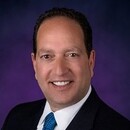Northwell Health and Nuvance Health
In May, nonprofit health systems Northwell Health and Nuvance Health announced the completion of their merger, forming a new integrated regional health system serving patients in New York and Connecticut. The combined system has an operating budget of $22.6 billion and a staff of 104,000 people, including 22,000 nurses and 13,500 providers across 28 hospitals and other ambulatory and urgent care locations.
As part of the deal, Northwell will invest at least $1 billion into Nuvance.
Summa Health
In June, Ohio Attorney General Dave Yost conditionally approved General Catalyst’s purchase of Summa Health, based in Akron, Ohio, contingent on 10 conditions being met.
The venture capitalist firm, a subsidiary of Health Assurance Transformation (HATCo) first announced its planned acquisition of the health system in January 2024. In November, General Catalyst provided more details, outlining a purchase price of $485 million.
“The purchase price of $485 million, when added to Summa Health’s current cash, will enable the health system to eliminate $850 million in existing debt. The remaining cash, after closing adjustments, will fund a new, separately governed community foundation that will support focused investment to benefit community health in the Greater Akron region,” a press release stated.
The approval conditions include a requirement that a majority of the foundation’s board members have no affiliation with Summa Health, the foundation will agree not to sell its $15 million equity interest for at least three years after the closing and cooperation with the attorney general’s office over the next 10 years to enforce HATCo’s obligations to the health system.
Beacon Health System and Ascension Healthcare System
In early April, Beacon Health System, which has locations in Indiana and Michigan, announced its plans to acquire Ascension healthcare system in Michigan. The deal includes Ascension’s network of four hospitals, several outpatient clinics and an ambulatory surgery center.
“Expanding our reach deeper into southwest Michigan broadens access to high-quality, affordable care for communities served by Ascension, extends our service area and provides growth opportunity to further strengthen the health system,” said Kreg Gruber, Beacon Health System CEO, in a statement. “This acquisition will create a bright future for these communities by ensuring access to quality healthcare services for generations.
EXPLORE: Here are three tips for healthcare IT teams on navigating due diligence.
Hudson Regional Health
CarePoint Health System’s Chapter 11 bankruptcy plan was approved in April, paving the way for the creation of Hudson Regional Health, a new health system in Secaucus, N.J., created from CarePoint’s former hospital properties: Hudson Regional Hospital, Christ Hospital, Hoboken University Medical Center and Bayonne Medical Center, according to an announcement.
Yan Moshe, chairman of the new health system, provided $120 million in funding to upgrade the locations.
“The bankruptcy process played a crucial role in restructuring the hospitals and achieving our client’s ultimate objective of ensuring the long-term financial viability of the hospitals; based on Mr. Moshe and [CEO] Dr. [Nizar] Kifaieh’s keen vision, we crafted a successful plan for the hospitals that secured the votes of the major creditors and constituents and was ultimately approved by the court,” said Hudson Regional attorney Mohamed Nabulsi in the statement.
Emory Healthcare and Houston Healthcare
Houston Healthcare, which has locations in Warner Robins, Ga., and Perry, Ga., joined the Emory Healthcare system on June 1 after receiving approval from the Georgia Attorney General’s Office, according to a press release. The organizations announced the deal in August 2024.
Houston Healthcare has two hospitals with 282 total beds and several outpatient facilities and physician practices.
Doylestown Health and University of Pennsylvania Health System
Following approval from the Pennsylvania Attorney General and the Federal Trade Commission, Doylestown Health joined the University of Pennsylvania Health System on April 1, according to an announcement. The 245-bed community teaching hospital has been renamed Penn Medicine Doylestown Health. It is Penn Medicine’s seventh hospital.
University of Mississippi Medical Center and Merit Health Madison
The University of Mississippi Medical Center is expanding with the recent acquisition of Merit Health Madison, now operating as UMMC Madison. The hospital, based in Canton, Miss., has 67 licensed beds.
“We’ve been staffing the emergency department for some time now, but operational challenges, such as having different electronic medical record systems, highlighted the need for a more unified approach. Acquiring the hospital allows us to overcome those hurdles and expand our capacity to care for patients,” said Dr. Alan Jones, associate vice chancellor for health affairs at UMMC, in a statement.
DISCOVER: Tackle data integration successfully during a healthcare merger or acquisition.
Duke Health and Lake Norman Regional Medical Center
Duke Health completed its acquisition of Lake Norman Regional Medical Center and assumed operations on April 1. The hospital, located in Mooresville, N.C., is now known as Duke Health Lake Norman Hospital.
The acquisition of the 123-bed hospital totaled $284 million. The health system plans to integrate Duke Health Lake Norman Hospital’s electronic medical record into the Duke Health system.
“From clinical quality and safety to operational excellence and strategic planning – we have a legacy of delivering the best care to the communities we serve. We look forward to building a new foundation of excellence in Lake Norman,” said Craig Albanese, CEO of Duke University Health System, in a statement.
North Kansas City Hospital and Meritas Health
Two Missouri-based healthcare organizations have united under one brand: North Kansas City Hospital and Meritas Health became NKC Health in June.
“Through thoughtful research, we developed a new brand that better represents us as one system and empowers patients to easily recognize that whether in the hospital or at the clinics, they’re cared for by the same trusted team,” said Kristen Guillaume, vice president and chief digital and information officer of NKC Health, in a press release.















